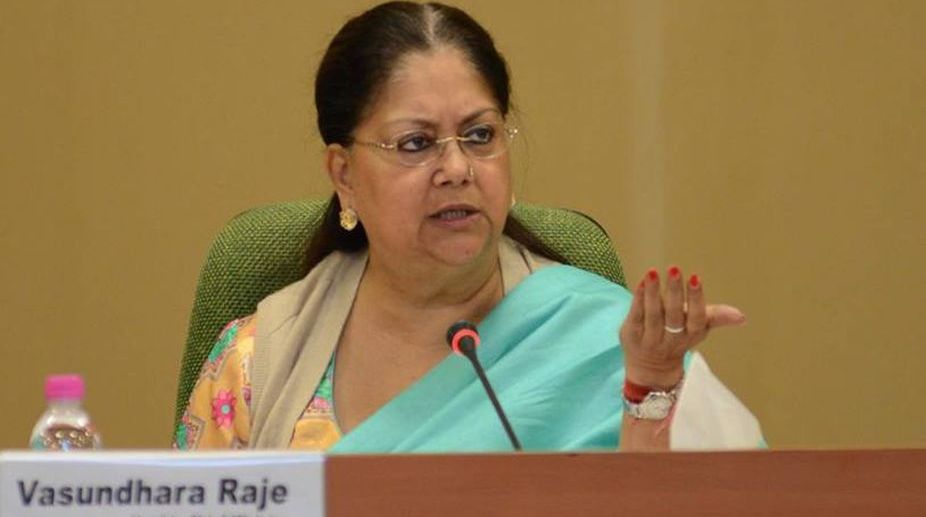Bagidora assembly bypoll records 73.25 pc voting in Rajasthan till 5 pm
Though voting ended at 6 pm, the final percentage will be declared later tonight.

Rajasthan Chief Minister Vasundhara Raje (Photo: Facebook)
Despite opposition from various quarters, the Vasundhara Raje government in Rajasthan on Monday tabled the controversial bill on probing public servants and gagging free speech in the state assembly session.
The Criminal Laws (Rajasthan Amendment) Bill amends the Criminal Code of Procedure, 1973, and also bars the media from naming the public servant till the Rajasthan government allows the case to be investigated.
The bill has been slammed by politicians and rights bodies terming it as unconstitutional and a move to shield corruption.
Advertisement
The bill was introduced by Rajasthan Home Minister Gulab Chand Kataria among uproarious scenes as the main opposition Congress walked out from the assembly.
Senior BJP leader Ghanshyam Tiwari also walked out in protest of the bill.
The Congress legislators raised slogans against the government and the bill in the state assembly.
The Rajasthan government through an ordinance, Criminal Laws (Rajasthan Amendment) Ordinance, 2017, has made amendments in the Criminal Procedure code, 1973 and Indian Penal Code, 1980, in order to restrain the courts from ordering an investigation against a person, who is or was a judge or magistrate or a public servant, for any act done by them during discharge of their official duties.
Besides, no investigation can be conducted by any probe agency against the persons specified without there being any prosecution sanction.
The sanctioning authority will have to take its decision within 180 days from the date of the receipt of proposal.
The ordinance also provides that in absence of a decision within the stipulated time period the sanction will be deemed to have been granted.
The ordinance also states that no one shall print or publish or publicise in any manner the name, address, photographs, family details or any other particulars which may lead to disclosure of identity of a judge or magistrate or a public servant against whom proceedings are pending, until the sanction has been deemed to have been issued.
Any contravention of the provisions shall be punished with imprisonment upto two years and also fine.
(With inputs from agencies)
Advertisement